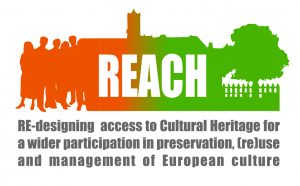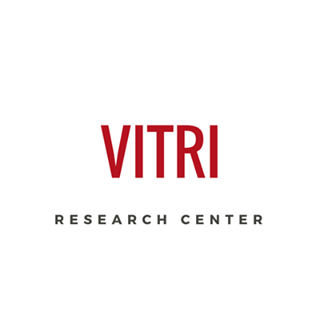Members of the IGH/ÚSD are part of a Science Development Programme project at the Charles University Q09 called “History – The key to understanding a globalised world” (The project coordinator: prof. PhDr. Martin Kovář, Ph.D.)
The project is a continuation of an earlier project from the PRVOUK programme number 12: “History in an interdisciplinary perspective”. It retains its interdisciplinary character but is even more directed towards an international dimension of research. The programme is closely related to the prolific department (“flagship”) of Charles University “History – transcontinental studies: Europe and/against the World”. The goal of the project is to analyse the historical transformations of the different forms of state, society, economy and culture and the deeper context needed to understand today’s globalized world. The research will explore the various processes that heralded today’s global state of affairs, as well as the relationships between the different dimensions of human dealings – in a world of politics, social relationships, economic processes and culture. Plus, it’s not just about internationally-conceived research for academic discussions; it will also benefit the wider public, relevant state institutions or different segments of civil society. More information about the programme can be found here.
 KREAS is a project of the Operational Programme Research, Development and Education, call: Excellent Research. The project has been set up for the period of 2018-2022. The Faculty of Arts of Charles University is the project holder, defined by the call as a Research and Development Centre (R and D Centre). The project covers the main research areas of the Faculty and its chief research agenda is formed on the platform of three research centres (see hrc.ff.cuni.cz). The purpose of the KREAS project is in the research of a host of problems in the humanities, focused on the core foundations and nature of European identity, including a comparative study of non-European civilizations, all set in a broader cultural perspective. This includes philosophical, religious, communicational, linguistic, and historical contexts. The aim of our research is to explore the full potential of European society, to respond adequately to current crises, to effectively adapt to new social challenges – such as the growing global interconnectedness, migration of people and ideas and new technologies – and to come up with creative solutions. The methodological foundation of the project is the conviction, that various crises emerging as part of encounters with foreign phenomena should not be understood as threats but, rather, as incentives to shape the future of Europe and its values.
KREAS is a project of the Operational Programme Research, Development and Education, call: Excellent Research. The project has been set up for the period of 2018-2022. The Faculty of Arts of Charles University is the project holder, defined by the call as a Research and Development Centre (R and D Centre). The project covers the main research areas of the Faculty and its chief research agenda is formed on the platform of three research centres (see hrc.ff.cuni.cz). The purpose of the KREAS project is in the research of a host of problems in the humanities, focused on the core foundations and nature of European identity, including a comparative study of non-European civilizations, all set in a broader cultural perspective. This includes philosophical, religious, communicational, linguistic, and historical contexts. The aim of our research is to explore the full potential of European society, to respond adequately to current crises, to effectively adapt to new social challenges – such as the growing global interconnectedness, migration of people and ideas and new technologies – and to come up with creative solutions. The methodological foundation of the project is the conviction, that various crises emerging as part of encounters with foreign phenomena should not be understood as threats but, rather, as incentives to shape the future of Europe and its values.
The employees of the Institute of Global History that are part of this project include PhDr. Jan Koura, Ph.D., Mgr. Jaroslav Ira, Ph.D., Mgr. Jiří Janáč, Ph.D., Mgr. Ondřej Daniel, Ph.D. More information about the programme can be found on https://kreas.ff.cuni.cz/en/
 REACH is a three-year project from the HORIZON 2020 family (call CULT-COOP-06-2017: Participatory approaches and social innovation in culture). The overall goal is to observe different forms of representation and the utilization of cultural heritage in different social environments with the objective of creating a social platform as a sustainable place for meetings, discussions and collaboration by a wide-ranging network of development bodies, tourism, education, creative industries, cultural heritage professionals, academic experts, arts practitioners, professionals in archives and galleries, associations and interest groups representative of non-professionals and local societies, and policy-makers – all those with a stake in research in the field of culture and cultural heritage. The project coordinator at the Faculty of Arts is professor Luďa Klusáková, co-authors Zdeněk Uherek, Jaroslav Ira, Jiří Janáč and Jan Krajíček. More information on the project’s webpage.
REACH is a three-year project from the HORIZON 2020 family (call CULT-COOP-06-2017: Participatory approaches and social innovation in culture). The overall goal is to observe different forms of representation and the utilization of cultural heritage in different social environments with the objective of creating a social platform as a sustainable place for meetings, discussions and collaboration by a wide-ranging network of development bodies, tourism, education, creative industries, cultural heritage professionals, academic experts, arts practitioners, professionals in archives and galleries, associations and interest groups representative of non-professionals and local societies, and policy-makers – all those with a stake in research in the field of culture and cultural heritage. The project coordinator at the Faculty of Arts is professor Luďa Klusáková, co-authors Zdeněk Uherek, Jaroslav Ira, Jiří Janáč and Jan Krajíček. More information on the project’s webpage.
 The Centre for the Transdisciplinary Research of Violence, Trauma and Justice is a University centre for the study of collective violence, reconciliation and transitive justice at Charles University. VITRI was founded in 2018 as part of the Humanities Research Centres. It seeks to initiate collaboration between different disciplines and, in the long term, to encourage early-stage scientists and advanced doctoral students to pursue independent research. At the same time, it aims to produce excellent scientific research with an international impact. To this end, an international scientific advisory panel will be set up, working with senior members of the Centre. Collective violence and its devastating consequences are explored from a number of perspectives: from a medical and historical point of view to a political and legal perspective. Experts from various disciplines – political scientists, historians, psychologists, (military) psychiatrists and lawyers – are exploring comprehensively conceived collective violence and its lasting consequence on society from a multidisciplinary perspective. Although the Centre’s research focuses primarily on the 20th century and the present, it does not turn its back on further research or deeper historical probes to validate or refute existing models and theories about old ones or formulate new ones. On behalf of the IGH/ÚSD these members are part of VITRI: Prof. PhDr. Václav Horčička, Ph.D., Mgr. Mikuláš Pešta, Ph.D. and PhDr. Jaroslav Valkoun, Ph.D. More information on the project’s website.
The Centre for the Transdisciplinary Research of Violence, Trauma and Justice is a University centre for the study of collective violence, reconciliation and transitive justice at Charles University. VITRI was founded in 2018 as part of the Humanities Research Centres. It seeks to initiate collaboration between different disciplines and, in the long term, to encourage early-stage scientists and advanced doctoral students to pursue independent research. At the same time, it aims to produce excellent scientific research with an international impact. To this end, an international scientific advisory panel will be set up, working with senior members of the Centre. Collective violence and its devastating consequences are explored from a number of perspectives: from a medical and historical point of view to a political and legal perspective. Experts from various disciplines – political scientists, historians, psychologists, (military) psychiatrists and lawyers – are exploring comprehensively conceived collective violence and its lasting consequence on society from a multidisciplinary perspective. Although the Centre’s research focuses primarily on the 20th century and the present, it does not turn its back on further research or deeper historical probes to validate or refute existing models and theories about old ones or formulate new ones. On behalf of the IGH/ÚSD these members are part of VITRI: Prof. PhDr. Václav Horčička, Ph.D., Mgr. Mikuláš Pešta, Ph.D. and PhDr. Jaroslav Valkoun, Ph.D. More information on the project’s website.
Chief solver: PhDr. Ondřej Vojtěchovský, Ph.D.
The goal of the project is to map and analyse international, social and cultural relations between Czechoslovakia and Yugoslavia in the 1970s and 80s. It examines analogies and differences between two types of state socialisms in their later periods through their mutual reflexions and interactions. Czechoslovak-Yugoslav relations played a significant role in the history of both countries from their foundation until their dissolution in the early 1990s. These relations though entered a new phase after 1968. While mutual relations developed in an unprecedented value (economic ties, research, culture, tourism), their paradigm changed. In Yugoslavia, Czechoslovakia ceased to be perceived as a more advanced and an economically and culturally more developed state they could learn from. As for Czechoslovakia, Yugoslavia lost its reputation of a poor, less developed country and became an object to be admired and idealised. The project’s goal is to analyse Czechoslovak-Yugoslav relations on an international level but especially in a wider context covering both social and cultural dimensions.
Analysing the interactions between the two types of state socialisms sheds light on parallels and discrepancies in the development of similar social-political problems, such as the relations between power and society, possibilities and forms of opposition, repressive steps taken in reaction by the regime, the national question or modernisation trends in society.
Chief solver: prof. PhDr. Jan Županič, Ph.D.
The aim of the project is to research the development of the ennoblement policy of the Habsburg monarchy in the “long” 19th century (1789-1918), with a special focus on comparing this with developments in other countries of Central Europe (Prussia, Bavaria, Württemberg and Saxony). Its primary objective is to analyse the views of individual rulers, the higher echelons of the state and important figures in the monarchy toward this issue, as well as to observe the transformation of the ennoblement policy and changes in the set requirements that needed to be met before ennoblement.
An important part of the research will be in addressing the question of the (non-)recognition of foreign noble titles, both Austrian titles in German states, as well as purely German titles and foreign ones (especially Papal titles). All aspects will be studied applying the methods found in broader social history research of the contemporary way of thinking while applying the findings in social mobility and marriage strategies of the ones being ennobled.